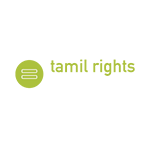Sri Lanka, historically consisting of distinct Eelam Tamil and Sinhalese kingdoms, was brought under one administrative rule during the colonial occupation of the island. Despite Eelam Tamil and Muslim leaders being at the forefront of the independence movement, working alongside the Sinhalese leaders, the post-independence structural and constitutional makeup of the country under successive governments disproportionately favored and privileged the majority Sinhala Buddhists of the country. The Sinhala Only policy privileged the Sinhala language, Buddhism was awarded the most prominent place in the constitution, and the government conducted state-sponsored encroachments of Sinhalese communities in traditional Tamil Eelam homelands. Eelam Tamils were denied equal opportunities to education, employment, and economic development. Since the 1950s, riots against Eelam Tamils were rampant, culminating in the state-sponsored 1983 genocide which left thousands of Eelam Tamils dead, many injured, businesses and properties torched, and led to the immense emigration of Eelam Tamils who fled the country fearing for their lives. Further, in 1981, in a move of cultural genocide, the historic Jaffna Public Library was burnt down.
Four decades of non-violent resistance and struggle on the part of Eelam Tamils, and cooperation of Tamil leaders with successive governments of Sri Lanka to resolve the discrimination and political issues faced by the Eelam Tamils produced little to no outcomes, and consequently paved way to the armed struggle and subsequent civil war between the Liberation Tigers of Tamil Eelam (LTTE) and the Government of Sri Lanka. The final stages of the war in 2009 were fraught with grave violations of International Humanitarian Law and International Human Rights Law to which there has been no accountability or justice, but rather a culture of impunity has led to military leaders such as Lieutenant General Shavendra Silva who are credibly accused of war crimes being appointed to key positions. Between January and May 2009 alone, it is estimated that over 140,000 Eelam Tamil civilians were killed. The government forces repeatedly shelled “No Fire Zones” which included hospitals, UN facilities, and food distribution centers where civilians were encouraged to gather. During and after the war there continue to be mass enforced disappearances, arrests, and torture of people without legal bases, sexual and gender-based violence, and extra-judicial killings. Even though the National Unity Government elected in 2015 promised to carry forward transitional justice, they failed to deliver on their promises.
The current government of Sri Lanka headed by President Gotabaya Rajapakse and Prime Minister Mahinda Rajapakse are both individuals who are responsible for the genocide of 2009. President Gotabaya Rajapakse has pulled Sri Lanka out of international agreements including the co-sponsored UNHRC obligations of 2015 and has publicly promised to protect “war heroes” from prosecution. Under the current regime, the militarization of the North continues, fueled further under the guise of dealing with the COVID-19 pandemic. Memorialization is prohibited. Harassment and intimidation of journalists and human rights defenders and activists continue, and dissenting voices are forcibly silenced. It is important to note that discourses about human rights and demands of accountability from domestic groups and the international community is portrayed as “Western” concepts and imperialist influences by the current regime, thus effectively dividing the country further, and securing the support of the majority population under the false pretense of nationalism and patriotism. This effectively denies the multiethnic and multi-religious reality of Sri Lanka.
Further, since the end of the war, the Muslim community have emerged as targets of right-wing Sinhala Buddhist extremists and have faced racial riots, unlawful detention in the aftermath of the Easter bombings of 2019, and enhanced discrimination. Other religious minorities and individuals belonging to the LGBTQI community also continue to be discriminated against and oppressed by the state.
